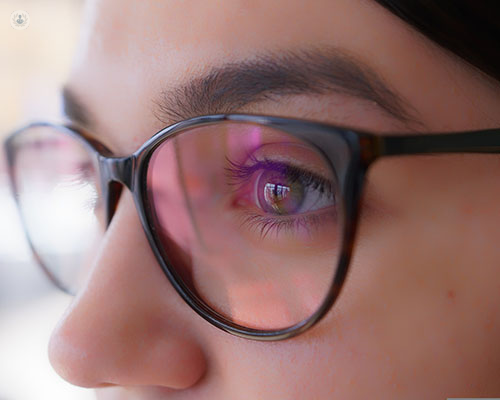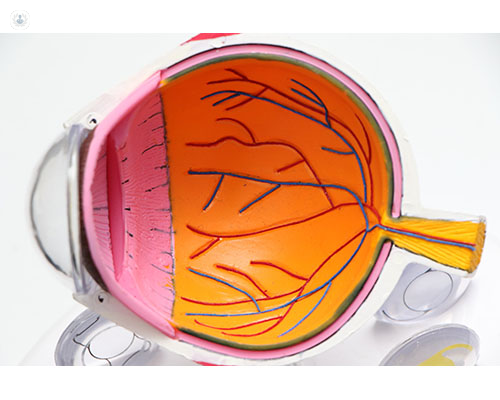How can lifestyle affect our eyesight?
Written in association with:Mr Sameer Trikha is a renowned consultant ophthalmic surgeon, with more than 15 years of experience. In his latest article, Mr Trikha explains how our lifestyle can affect our eyesight and ocular health, and offers some tips on how to best protect the eyes.

What lifestyle factors can affect the health of our eyes?
Reduced sleep and excessive screen time can affect our ocular health. Using screens intently has been shown to reduce our blink rate and can therefore exacerbate a condition known as dry eye.
In terms of dietary factors, lots of processed food and high glycaemic index foods can increase the risk of diabetic eye disease (through type 2 Diabetes).
What foods can help keep my eyes healthy?
Fresh fruit and vegetables such as kale, carrots and broccoli have many nutrients and vitamins that maintain eye health. Specifically, vitamin B3, flaxseed, omega 3 and coenzyme Q10 have shown great benefits for the eyes.

How often should I take breaks from looking at my screen?
For good eye health, I recommend regular breaks from the screen (at least 10 minutes every hour). Regular walks in nature and viewing ‘natural colours’ also help soothe the eyes. I’d also suggest a maximum of 8 hours a day looking at a screen
Avoiding screens for 1 hour before bedtime also helps regular sleep-wake cycles and improves sleep.
Who is most at risk of vision problems or eye conditions?
Aside from those with pre-existing medical problems or a family history of eye disease, patients who work shift patterns, or work in manual work (such as builders, welders etc) tend to have a higher incidence of eye problems. Patients who may be taking immunosuppressive medications such as steroids may also have a higher incidence of eye problems.

How often should I get my eyes checked?
I would usually recommend an annual check with a specialist to assess eye health.
Mr Sameer Trikha is an internationally recognised consultant ophthalmic surgeon with over 15 years of experience. If you would like to book a consultation with Mr Trikha you can do so today via his Top Doctors profile.


